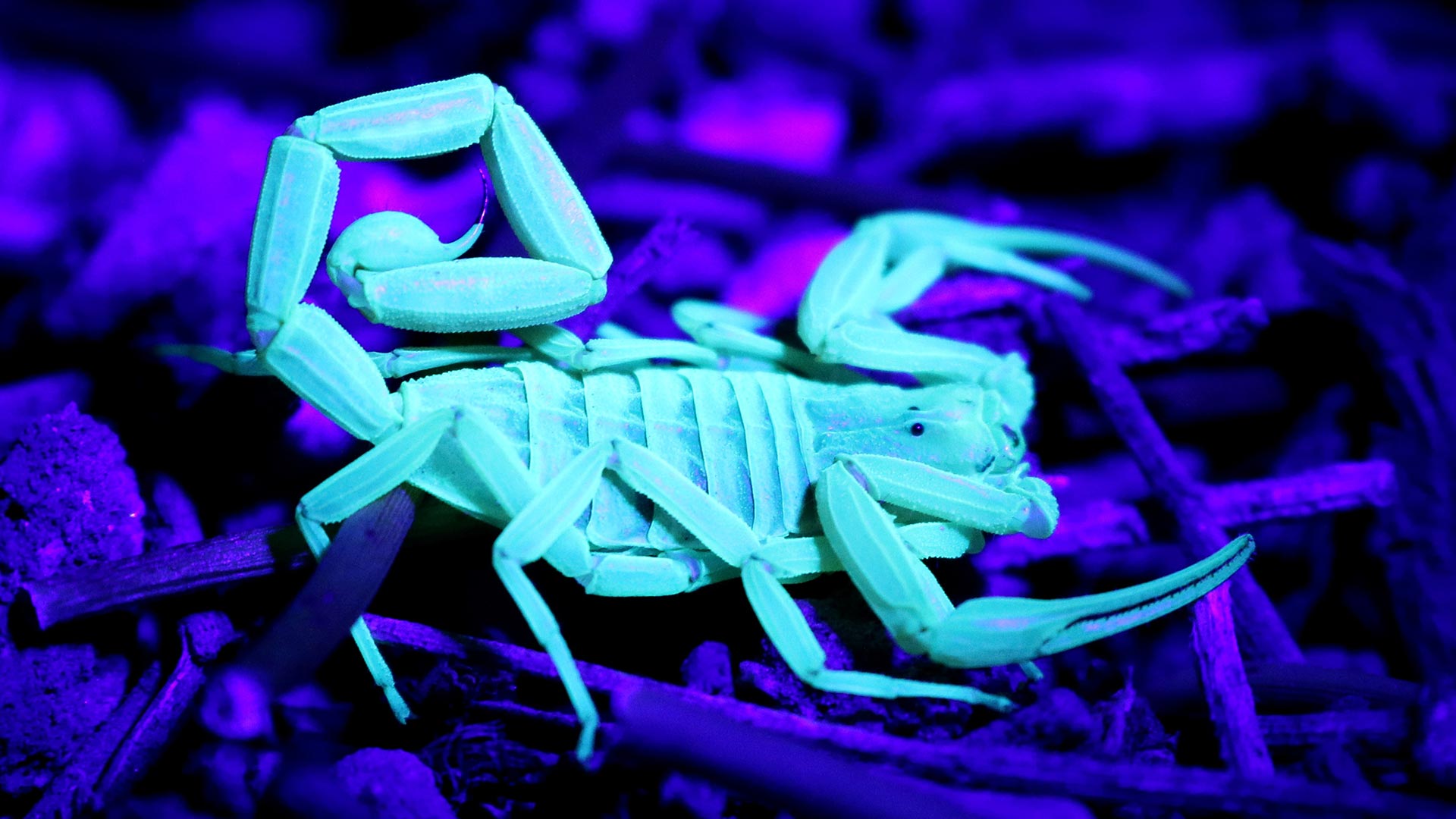 Bark scorpions glow white under a black light.
Bark scorpions glow white under a black light.
Over millions of years, the Arizona bark scorpion has evolved into a true desert survivor.
Now, new research traces its origins to an abrupt and massive genetic event.
More than 450 million years ago, the entire genetic instruction book of spiders' and scorpions' common ancestor doubled, according to a genomic comparison of the common house spider (Parasteatoda tepidariorum) and the Arizona bark scorpion (Centruroides sculpturatus).
Kim Worley of Baylor College of Medicine, who worked on the BMC Biology study, said gene replicas help species diverge by freeing up copies for other uses.
"One copy can continue to provide the functions that it was used for originally, and the new copy is not constrained to provide those functions because the original copy's already providing it," Worley said.
Whole genome duplication is not unheard of. Copies of single genes or chromosomes are more common.
"Genomes change over time, often because of this duplication and divergent process. And sometimes that's individual genes or parts of genes, and sometimes that's larger regions — parts of chromosomes, or even whole chromosomes, or even whole genomes in some cases," Worley said.
Most duplicate genes are later lost; those that remain can take on new roles.
The gene sequencing took place as part of a pilot study for i5k, a project that aims to sequence 5,000 arthropod genomes.


By submitting your comments, you hereby give AZPM the right to post your comments and potentially use them in any other form of media operated by this institution.